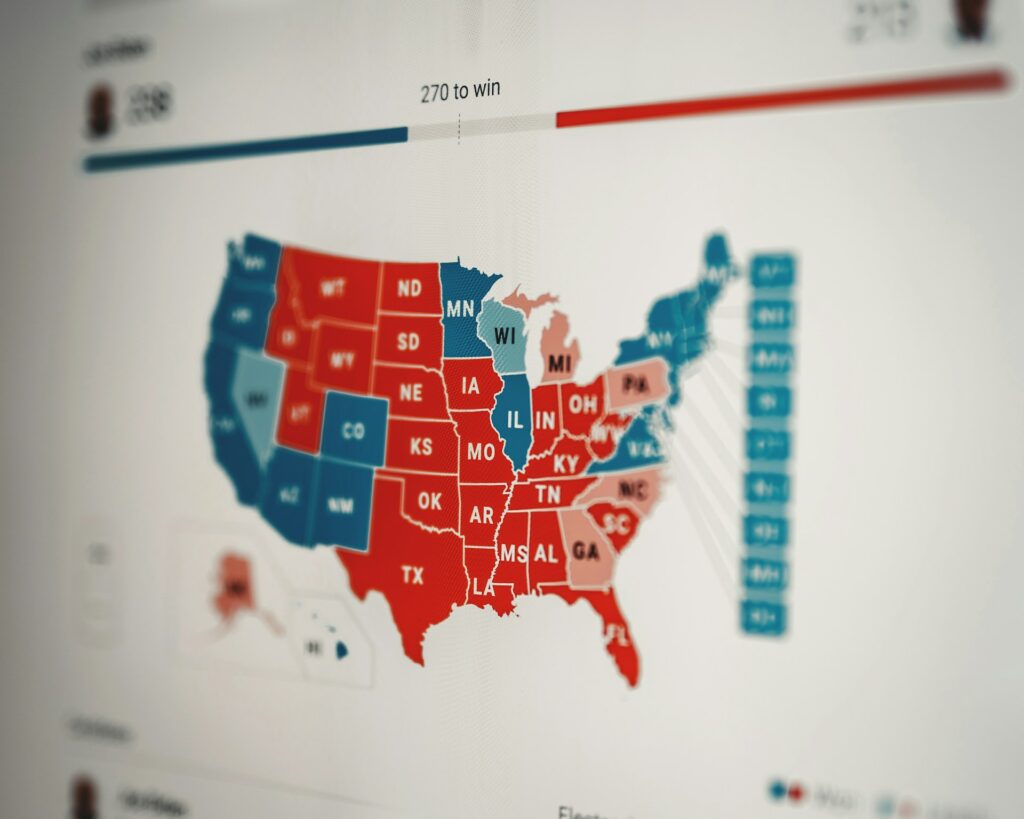
(Scypre.com) – In a significant turn of events late Wednesday night, a push to revamp Nebraska’s Electoral College vote distribution was halted by state legislators, despite former President Donald Trump’s public urging for a shift to a winner-take-all system—a change that could favor him in the upcoming fall election.
The legislative attempt to alter the state’s unique method of allocating its Electoral College votes fell through in a decisive procedural vote of 8-36. As the legislative session nears its end, the future of this proposal seems increasingly uncertain, with substantial obstacles ahead and unclear support for its passage into law.
Nebraska stands out in its method of distributing Electoral College votes, allocating three of its five votes according to the presidential candidates’ performance across its three congressional districts. This system places a spotlight on the competitive 2nd District, centered around Omaha, which has emerged as a battleground despite the state’s general Republican leanings. The failure to change this allocation method underscores the significant political and legislative challenges in altering electoral processes.
State Senator Loren Lippincott, the proponent of the original winner-take-all bill, has announced plans for one final push to get the measure voted on before the legislative session concludes on April 18. However, doubts linger about the proposal’s viability. Senator Julie Slama attempted to fast-track the bill by proposing it as an amendment to other legislation, a strategy thwarted when lawmakers voted it down for not being sufficiently related, a requirement under state law for amendments.
The attempt to modify Nebraska’s Electoral College vote allocation has not only local but also national implications. Trump and Nebraska Governor Jim Pillen’s calls for change have reignited interest in the proposal, which had languished since its introduction. This renewed interest comes amid broader national debates over electoral integrity and the fairness of the Electoral College system.
Critics and supporters of the proposal have voiced strong opinions, reflecting the deep political divisions within the state. Proponents argue that the current system dilutes Nebraska’s influence in presidential elections, while opponents celebrate its encouragement of broader political engagement across the state. Democratic State Senator Jen Day, defending the existing allocation method, highlighted its role in promoting more inclusive political dialogue and policy considerations.
Nebraska’s unique Electoral College allocation system, in place since the 1992 presidential election, has only twice resulted in its 2nd District electoral vote going to a candidate who did not win the state overall. The ongoing debate over this system is emblematic of wider national discussions about electoral fairness and representation, particularly in a political era marked by close presidential races and intense partisan competition.
As the legislative session winds down, the outcome of this electoral vote allocation debate in Nebraska remains uncertain. The state’s approach to the Electoral College not only affects its own political landscape but also reflects broader American concerns about how best to represent the electorate’s will in the complex mosaic of U.S. presidential elections.